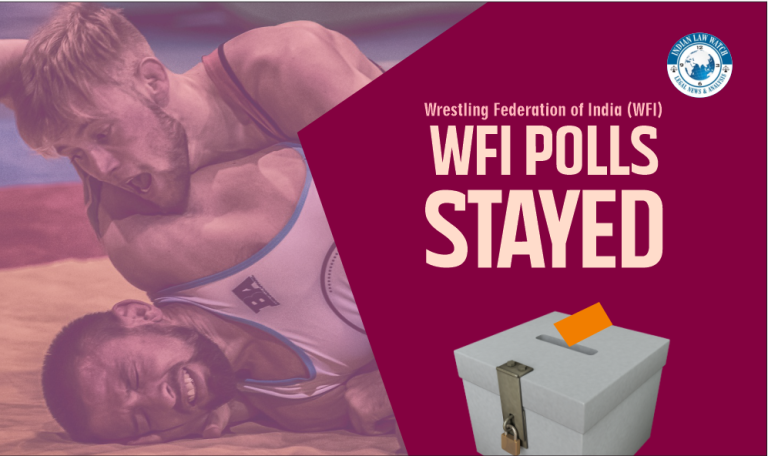

According to Collin’s Dictionary, service charge is an amount that is added to your bill in a restaurant to pay for the work of the person who comes and serves you. The issue of levy of service charge came up for hearing in National Restaurant Association of India & Ors. v. Union of India & Anr., W.P. 10683/2022, the Delhi High Court stayed the CCPA guidelines on the levy of service charge until the next date of hearing, i.e., 25.11.2022 with certain exceptions. Under Section 18(2)(1) of the Consumer Protection Act, 2019 (Act) the CCPA is empowered to issue necessary guidelines to prevent unfair trade practices and protect consumers’ interest. The issue has lot of meat as it is not uncommon to see the non-voluntary unilateral decision to levy service charge on the bill and heated consequences for challenging the same over the counter, may not have been uncommon incidents. In this case, the Guidelines issued by the Central Consumer Protection Authority (CCPA) were challenged on the ground that they stated the charging of service charge in addition to the total price of food items, is an unfair trade practice under the Consumer Protection Act, 2019.
Unfair Trade Practices
Legally speaking, the term “unfair trade practices” is defined under Section 2 (47) of the Consumer Protection Act, which means a trade practice which, for the purpose of promoting the sale, use or supply of any goods or for the provision of any service, adopts any unfair method or unfair or deceptive practice including any of the following making any statement, whether orally or in writing or by visible representation including by means of electronic record, which—
(a) falsely represents that the goods and services are of a particular standard, quality, quantity, grade, composition, style, or model.
(b) makes a false or misleading representation concerning the need for, or the usefulness of, any goods or services.
(c) not issuing bill or cash memo or receipt for the goods sold or services rendered in such manner as may be prescribed.
Key Insights
- The Central Government and the Central Consumer Protection Authority(CCPA) filed an application in the Delhi High Court seeking vacation of the stay on the CCPA 4th July guidelines, which prohibited hotels and restaurants from levying service charge on food bills without the express consent of the consumers. The court in response asked the two authorities to bring the documents on record after which the petitioners may file their replies and listed the matter for further hearing on November 2022.
- According to the CCPA, charging anything over and above the same, would amount to an unfair trade practice under the Consumer Protection Act, 2019. It is on the aforesaid basis and on the consideration of the complaints asserted to have been received, that it has proceeded to issue the following directives: –
“7. Therefore, to prevent unfair trade practices and protect consumer interest with regard to levying of service charge, the CCPA issues the following guidelines –
(i) No hotel or restaurant shall add service charge automatically or by default in the bill.
(ii) Service charge shall not be collected from consumers by any other name.
(iii) No hotel or restaurant shall force a consumer to pay service charge and shall clearly inform the consumer that service charge is voluntary, optional and at consumer‟s discretion.
(iv) No restriction on entry or provision of services based on collection of service charge shall be imposed on consumers.
(v) Service charge shall not be collected by adding it along with the food bill and levying GST on the total amount.”
- Dewan Chaman Lal Committee Report To consider the issue of levy of service charge is lawful or not, the Court referred to the Report submitted by the Dewan Chaman Lal Committee back in June 1958. The said Report recommended that the continental system of service charge in relation to its collection and disbursement while deprecating the practice of allowing the serving staff to accept individual tips.
- Recommendations by the Wage Board: The Chief Commissioner of Delhi constituted the Wage Board in 1964. The Board recommended that a service charge of 5% to 10% can be levied.
The Board also proposed that the service charge collected from customers can be distributed in the following manner:
- 10% to a welfare fund,
- 15% to be retained by the management for breakages,
- 45% to the workmen and employees, and
- 30% to the wage bill.
- NCDRC exercised self-restraint to adjudicate – Nitin Mittal Pind Balluchi Restaurant, 2012 SCC OnLine NCDRC 444 It is now well established that consumer courts on the issue of pricing do not interfere in such matter as it is the discretion of the concerned restaurant to charge the price of the items as they wish. In fact it is the proposal from their side to the customers to accept the same or not. It is a contractual matter between the parties—one proposes and the other accepts. Consumer courts on both the counts cannot interfere in the business terms of the parties and the complaint cannot be admitted.
- It must be borne in mind that there has to be some difference in price in respect of food served in the restaurant itself and packed food. For the food which is served in the restaurant itself, the owner of restaurant has to incur money for furniture, carpets, Air-conditioners, fans, waiters, cleaning, moping and dusting the restaurant, maintenance of reception etc.; for packed food, there is no need to give such like services. The complainant has made a vain attempt to make the bricks without straw. Foras below have nowhere missed the wood for tree. We add our voice to theirs and dismiss the revision petition.
- MRTP Commission held that levy of service charge is not an unfair or restrictive trade practice – S. Ahuja v. Pizza Express, decided on 10.12.2001 In S.S. Ahuja v. Pizza Express, decided on 10.12.2001, it was observed that levy of service charge does not restrict, deduce, or distort the competition in the market or the flow of capital or resources or supplies in the market. In the universal absence of such practice, it would provide the customer with more options. Further, it is also a customer’s choice to take food in the restaurant and bear the service charge or carry away the same and thereby, not bear the service charge. Hence, it was concluded that the levy of service charge is a trade practice that does not harm competitors and customers and therefore, it is not an unfair or restrictive trade practice.

- In the plea filed by Advocates Nina Gupta and Ananya Marwah on behalf of the National Restaurant Association of India, it is alleged that the CCPA guidelines are arbitrary and untenable inasmuch as there is no law that disallows restaurants to charge a service charge. In the absence of due authentication and promulgation of the guidelines, the contents thereof cannot be treated as an order of the Government. The law does not disallow the levy of service charge but definitely has power to check the unfair trade practice.
- Granting time to the National Restaurant Association of India and Federation of Hotel and Restaurant Associations of India to respond to the government stand, Justice Yashwant Varma listed the matter for hearing on October 6. The court also extended the interim stay on the guidelines. The matter was last getting reflected for hearing on November 25, 2022. The stay of CCPA guidelines is subject to the following until the next date of hearing:
(i) The levy of service charge and the obligation of customers to pay the same must be displayed duly and prominently on the menu or other places deemed expedient.
(ii) The members of the petitioner association must undertake to not levy service charge on takeaway items.
Therefore, the issue may involve legal interpretation of whether the guidelines are lawfully legislated withing the power of CCPA and whether it suitably qualifies under Unfair trade practices in view of the Hon’ble Court.
- The issue also however raises the important concern of the consumers that they have issue on the ‘forceful levy’ of the service charge, even if the food is of prescribed quality and over and above the price above that they leave the tip at times to. The purpose and disbursement of the service charge also has no universal clarity too. The judgment will lay the foundation to resolve the issue rightly raised by CCPA to address the concerns of the consumer. The service industry has to value the concerns of the customers, in line with law.
- In US law the voluntary gratuities that customer leave is not taxable and the business gives the entire separately stated gratuity amount to its employees. If any of these conditions is not met, the mandatory gratuity is taxable, along with the rest of the bill. Service charges or other charges not specifically listed as gratuities on a bill or invoice are subject to sales tax.
- In Singapore, it is often clearly displayed in menus and signs that all prices are subject to a 10% service charge, which is not dependent on good service. Hence, it would not be right for you to refuse to pay.





